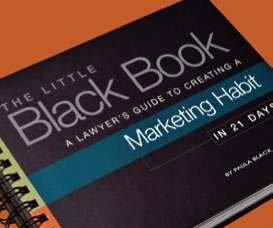Indicia:
- Is This Bull Cyclical or Secular in the WSJ, which contains the following observations as well as the following chart:
- Many investors are now calling the rebound in stocks since early March the start of a new bull market. But it could be only a temporary respite from a longer-term bear market dating back to the beginning of this decade.[...]
Historical data and the still struggling economy seem to point to the latter case, called a cyclical bull market in a secular bear market.
- In late 2001, Ned Davis Research, a market analysis and money-management firm, raised the idea that stocks had entered a secular bear market, a long period of flat or declining stocks. That idea gained traction last autumn as stocks fell below levels of a decade ago [and the firm now] considers this the fourth secular bear market since 1900. The last one, from 1966 to 1982, ended when the Federal Reserve moved to aggressively crush inflation.

These "secular" cycles run for long periods; secular bull markets have lasted from six to 24 years and bear markets 13 to 16 years.
[They also say] the rise in stocks since March 9 qualifies as a bull market, but [not] as marking a transition into a new secular rally. That is in part because, according to the firm's calculations, market valuations didn't fall far enough during the sell-off.
[Based on Ned Davis' calculations], the S&P fell to a P/E of roughly 12 in early March and is now just shy of 16, which compares to a 40-year median of 16.5.
"You compare that to the 1970s where we got down to P/Es below 10 and stayed there until 1982," says Tim Hayes, chief investment strategist at Ned Davis. The current secular bear market, he says, "is mature but it can go on for another several years." [...] For now, at least, those who think this is the beginning of a long-lasting bull market are few and far between.

- The ever-verbal Paul Krugman (I refrain from characterizing him further, even though he's a Nobel Prize winner from the Princeton economics department, which alone should put me in the blindly celebratory camp), wrote in today's Times under the heading Stay the Course, that it's far too soon to declare victory over the economic downturn and that those who believe "the economy is already turning around" "should be ignored" because at best the recovery policies "have pulled us a few inches back from the edge of the abyss." He believes we're at profound risk of falling into the notorious "liquidity trap"--think Japan in the 1990's. ("Liquidity Trap 101:" When a country's nominal interest rate has been lowered to or nearly to zero without resulting in appreciable stimulus. Since interest rates cannot go into negative territory, monetary policy is thus exhausted and a deflationary mindset can set in. It ain't pretty.)
- Far more impressively, Wharton Business School (Are Happy Days Here Again?) says, among other things:
- Then we have the enormous question of whether interest rates will rise as investors (see: China) decide that spiralling federal deficits as far as the eye can see demand higher returns. Higher interest rates are of course the worst of all possible worlds at the moment: Cyclically reinforcing higher deficits at the same time they tamp down what private sector investment may be left. US Treasuries yields are currently at a six-month high (the 30-year bond is above 4.5% whereas as recently as January it was at 2.5%--an 80% rise).
- Finally, permit me to add my own favorite risk: That we are embracing "too big to fail," and that we will adopt such a super-precautionary regulatory structure that we will end up getting neither "destruction" nor "creativity" in our financial system. If we go down that politically tempting and incumbent-friendly path, we will delay our recovery by untold years and its vigor by the stunting or loss of unknowable innovations.
And yet.
As I talk to senior law firm leaders domestically and abroad--I am chastened to report--one of the most widespread sentiments I hear is, "We're coming out of the woods. Aren't we? Aren't we??"
To be sure, I understand the strong, almost desperate, desire to hope that a return to the good old days is just around the corner. Life was simple; life was good.
Yet the more I see first- and second-hand of organizations in distress, the more pivotal I believe is the power of collective denial.
Do we need to fundamentally re-examine our business model? Can leverage grow to the sky? Will clients huff and puff about rate increases but ultimately (and quickly, in fact) submit? We prefer the easy and familiar answers to these questions, not the clear-eyed and unblinking answers.
Medicine teaches that in the human body pain serves a purpose; it alerts us to something that needs to be attended to.
Perhaps our world is not so different. And fundamentally denying the message that pain may indicate the need for some change leads to the antithesis of a cure. The morphine drip, the third glass of wine, the wishing and hoping for a return to "normal," the espying of "green shoots" while the thunderheads are rising: None of these is healthy.
Have I become the anti-optimist, then? Au contraire. Few things are more certain in my mind than the long-run demand for sophisticated, bespoke, and yes, costly, legal services:
- Globalization is not ending, it's accelerating.
- Worldwide capital flows have not stopped, they're sluicing in new directions.
- Cross-border projects will grow.
- Regulatory regimes are not getting simpler, they're getting more complex.
- And yes, financial innovation will--I promise you--return.
But I'm a worried optimist, and right now the emphasis is on "worried." I'm worried that we're not doing enough to remodel our firms for the post-Cravath System order. I'm worried that we will not get serious about re-inventing the seriously broken associate career path model. I'm worried that we will scurry back to the familiar dominance of the billable hour without thoughtful and heartfelt experimentation with alternative billing. I'm worried that we will embrace complacency. I'm worried that we will face the New Normal with a resolute stance of denial.
Joseph Schumpeter taught us that the genius of capitalism is creative destruction. Too many of us are focused exclusively, paralyzingly, on destruction. To accelerate the dawn, we need to focus on creativity.


 Former associate Venus Yvette Springs, an African-American lawyer at Mayer Brown's Charlotte, N.C., office has filed a Title VII discrimination suit that claims the law firm used her as a "marketing tool" before firing her in 2008.
Former associate Venus Yvette Springs, an African-American lawyer at Mayer Brown's Charlotte, N.C., office has filed a Title VII discrimination suit that claims the law firm used her as a "marketing tool" before firing her in 2008.

